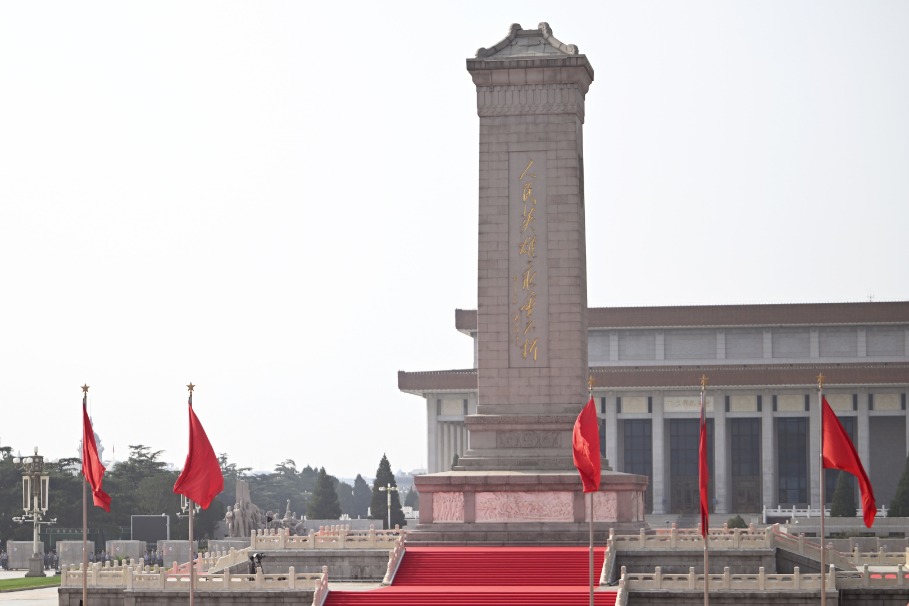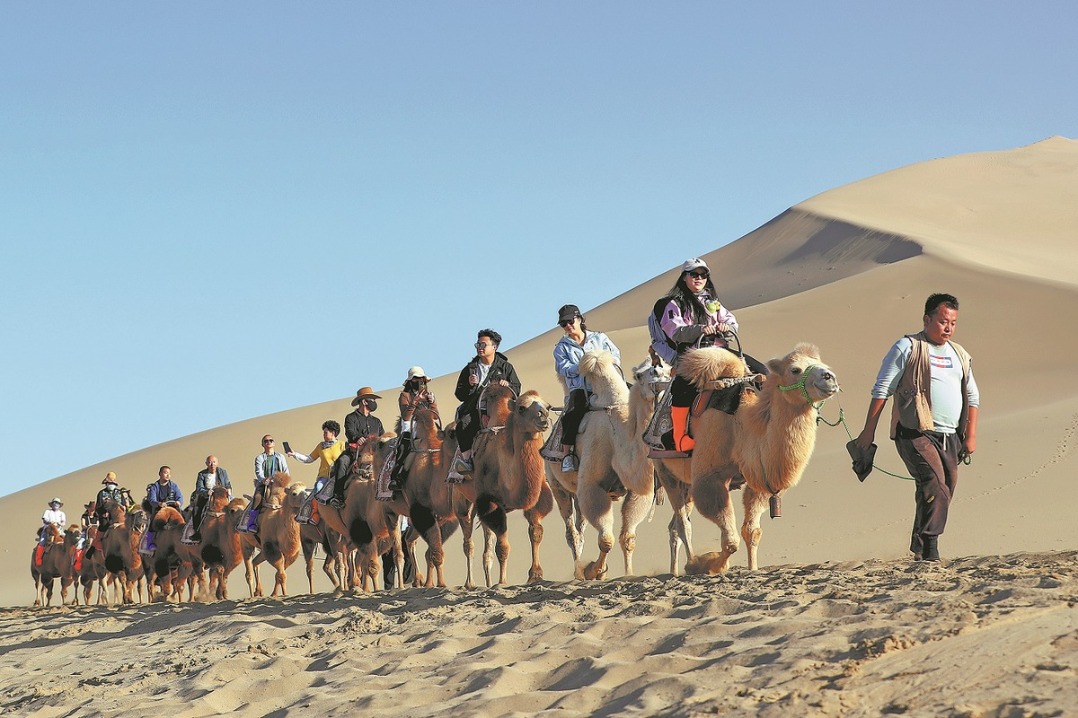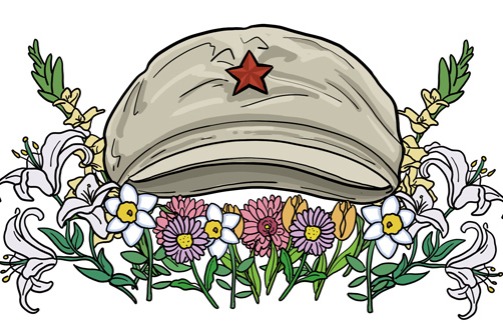China's rural revitalization can be a blueprint for Ghana and Africa


From July 3 to 12, I joined fellow students from around the world for the International Summer School for Regional, Country, and Global Development, hosted by China Agricultural University, in Beijing. The program brought together 15 international students from 14 countries and 47 Chinese students from 30 universities, combining academic lectures, field visits, and cultural immersion. The goal was simple but ambitious: to build a global youth collaboration network capable of addressing pressing issues such as food security, rural revitalization, and sustainable development.
At the opening ceremony, Professor Li Xiaoyun, the dean of the College of International Development and Global Agriculture of the university, called on students to embrace the motto of the school, "Solving the Difficulties of People's Livelihood and Cultivating the World's Talents." He urged us to "broaden our horizons and improve our professional skills, while committing ourselves to tackling global challenges such as food insecurity and rural revitalization, and poverty alleviation." These words stayed with me as we journeyed from the lecture halls of Beijing, visited key institutions, including the United Nations Development Program, the Asian Infrastructure Investment Bank, the World Food Program, and Tencent, to the villages of Xishuangbanna, Yunnan province, where I witnessed first-hand the success stories of China's rural revitalization.
Experiencing rural revitalization in Yunnan
In Xishuangbanna Dai autonomous prefecture, our summer school cohort visited Manla village. There, I witnessed striking examples of how communities have transformed underutilized or abandoned resources into engines of prosperity. Idle rubber forests, once yielding little income, have been repurposed into biodiversity research bases and eco-parks, attracting both scientists and tourists. Abandoned ponds have been converted into outdoor swimming pools, creating recreational opportunities for visitors. Traditional houses have been renovated into rural apartments, blending heritage with modern hospitality. Old water towers have been turned into village coffee brands, tapping into both tourism and agricultural value chains. Equally striking was the conscious effort to preserve and promote Dai ethnic culture. From traditional pottery and herbal medicine to water-splashing festivals and communal dances, culture itself has been turned into an economic resource. Instead of modernization erasing tradition, it has strengthened and redefined it. At one point, as we danced around a bonfire with Dai villagers, eating kebabs and enjoying local music, I thought of my own communities and villages back in Ghana. Our cultural practices are equally rich, yet they are often treated as relics rather than opportunities for growth and development.
Rural revitalization in China is an official strategy introduced in 2017 as part of the 19th National Congress of the Communist Party of China. It was designed to build on the success of poverty eradication campaigns, which by 2020 had lifted over 800 million people out of poverty, according to the 2021 World Bank report. The aim was to ensure that rural areas were not left behind in modernization and to prevent communities from slipping back into poverty. China's rural revitalization offers many lessons for Ghana and Africa.
China's approach extends beyond agriculture; it encompasses housing, sanitation, culture, digital technologies, and governance. Ghana's rural development policies are often fragmented, with agriculture handled separately from tourism, infrastructure, or education. To succeed, Africa must adopt an integrated vision where all these sectors reinforce one another. In Yunnan, local agricultural products were not sold raw but processed, branded, and marketed. For example, Manla village's coffee brand was built from a repurposed water tower.
In Ghana, farmers still sell raw maize, rice, and cassava with little processing. Investing in rural agro-industries can multiply income and reduce post-harvest losses. One of the most inspiring aspects of rural revitalization is its ability to attract young people back to the countryside. In Ghana, many young people often leave rural areas for urban centers or even move abroad, perceiving farming as unattractive. However, if rural areas are modernized with internet connectivity, vibrant economies, and cultural vitality, young people may be more inclined to stay or return to them.
In China, culture is not sidelined; it is reimagined as a driver of growth. Dai dances, water festivals, and handicrafts are now integral to rural revitalization. In Ghana, festivals such as Damba, Homowo, and Aboakyiri, celebrated by the Mole-Dagbani, Ga-Adangbe, and Akan ethnic groups in Ghana, respectively, can be promoted beyond cultural pride to serve as platforms for rural tourism and enterprise. China's rural revitalization is backed by strong government commitment and continuity.
By contrast, African rural development projects often collapse when governments change or funding ends. For Ghana to succeed, rural revitalization must be institutionalized in national policy, insulated from political cycles, and supported by a decentralized governance system. China has tied rural revitalization to ecological restoration. Idle lands are reforested, and biodiversity is protected. In Africa, where climate change has a severe impact on smallholder farmers, rural revitalization must incorporate climate-smart agriculture and ecological renewal.
Rural revitalization and Africa's development agenda
Rural revitalization is more than an economic policy; it is a philosophy of valuing the countryside as a space of life, dignity, and opportunity. China has shown that with the right vision, even the most neglected rural areas can become vibrant hubs of prosperity. For Ghana and Africa, the challenge is urgent. With rapid population growth, climate change, and persistent poverty, our future will depend on whether we abandon rural areas or revitalize them as engines of shared prosperity. Africa already has frameworks such as the African Union's Agenda 2063 and the Comprehensive African Agriculture Development Programme. Yet, many of these remain lofty documents with limited local implementation.
China's model demonstrates the importance of translating national visions into practical village-level action. Imagine if each district in Ghana identified and systematically transformed idle resources, unused land, cultural heritage, or underutilized infrastructure into economic opportunities, supported by local governance and youth initiatives. That would not only reduce poverty but also build resilient rural communities that can withstand global shocks such as pandemics or climate crises.
Participating in the summer school gave me more than academic knowledge; it gave me a vision of possibility. For instance, at UNDP, I learned how China's development journey began with rural agricultural reforms in 1979 and continued to inspire new approaches in poverty reduction, climate-smart agriculture, and women's empowerment.
For a student from Ghana's northern region, where food security and rural livelihoods are central issues, these insights offered valuable lessons that could guide African policy reforms. Standing in a reimagined Dai village, I realized that Ghana and Africa do not lack resources or culture; what we often lack is the political will, integrated vision, and sustained investment to transform rural areas. As I return from China, one conviction is clear: Africa must localize the lessons of rural revitalization, crafting home-grown strategies that combine agriculture, industry, culture, and sustainability. Only then can we secure a future where rural life is not seen as backward, but as the very foundation of our collective progress.
The author is a Ghanaian student in the College of International Development and Global Agriculture at China Agricultural University. The views don't necessarily reflect those of China Daily.
If you have a specific expertise, or would like to share your thought about our stories, then send us your writings at opinion@chinadaily.com.cn, and comment@chinadaily.com.cn.


































